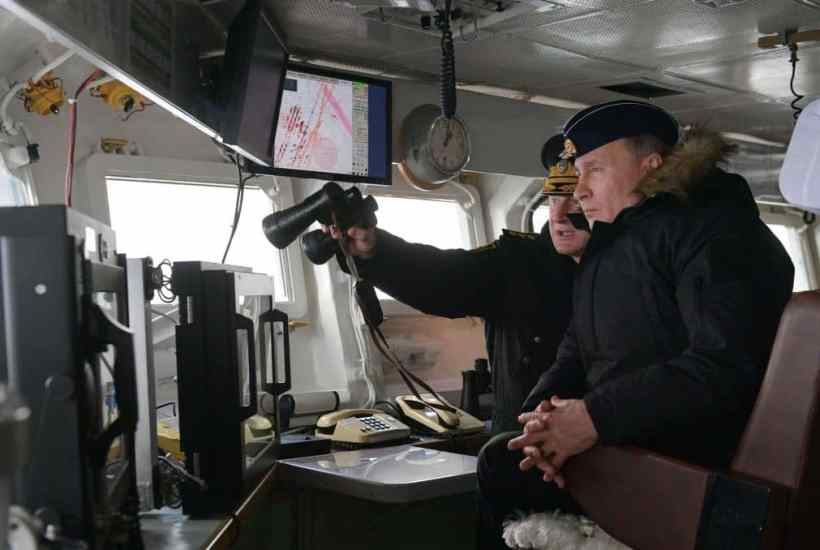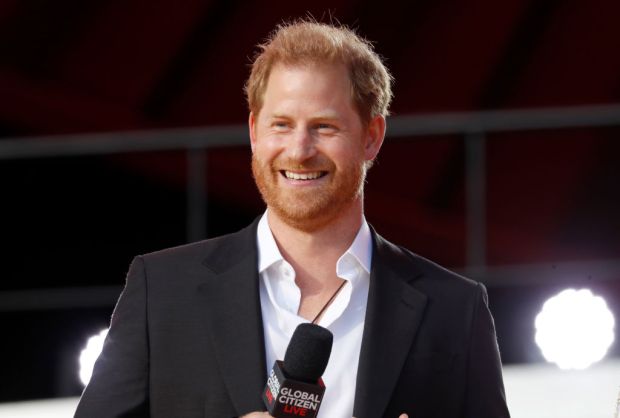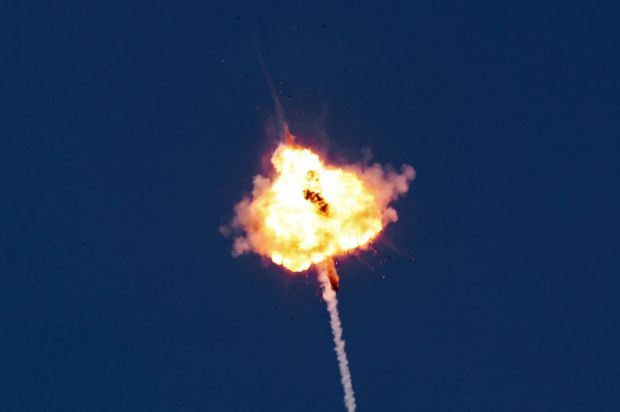Britain last night sent soldiers and hi-tech kit to bolster up Ukraine’s defences amidst the threat of a Russian invasion. But as well as preparing for war, the UK is also opting for jaw jaw with the Kremlin. For some, this is grounds for apoplexy, as – in the midst of arguably the most dangerous European security crisis since the end of the Cold War – Defence Secretary Ben Wallace invites his Russian counterpart, Sergei Shoigu, to visit Britain. But he’s absolutely right to do so.
No one is going to mistake Wallace for some closet Putinist, what the Germans call a Putinversteher, or ‘Putin understander.’ Indeed, the very same day as his announcement, presumably to make this point abundantly clear, he published an article accusing the Russian president of peddling myths and falsehoods as he seeks ‘the subjugation of Ukraine.’
For some there is something inherently wrong about extending an invitation to the man in charge of those 100,000 soldiers we are told are massing on Ukraine’s borders; a man who even claimedthat American mercenaries were being stationed in eastern Ukraine and were preparing a ‘provocation using unknown chemical components.’
Yet we should remember that dialogue is not a reward for good behaviour. While conversations with friends and allies may be more comfortable, it is precisely in tense, tough times that it is all the more important to talk to those with whom we disagree.
First of all, we still do not truly know what the Kremlin is expecting from the current crisis. Putin has outlined his wish list, but this is so extensive, ambitious and unrealistic that he must know that even the threat of escalation in Ukraine will not win it for him.
So what is Putin genuinely willing to risk, and what might he be willing to accept? Of course, the West does not necessarily have to give him anything (though Russia does have some legitimate grievances). But it’s still worth asking this question because we need this information to inform our own planning. Someone like Shoigu, who is both within Putin’s inner circle and also not a man to speak casually or carelessly, might be able to help give us a better sense of what’s what. At the very least, we could perhaps help puncture some Russian misapprehensions. (Incidentally, mistrust anyone who feels they can confidently assert ‘what Putin wants,’ unless they get to play on his personal ice hockey ‘Night League’ or go on holiday with him – both of which Shoigu does.)
By trying so quickly to channel the talks away from the expansive Russian agenda and into narrowly technical issues of missile stationing and military exercises, Washington probably missed a chance to explore these issues. If anything, they seem to have convinced Moscow that it wasn’t being taken seriously, so that it had to ratchet up the pressure a notch. Hence the recent cyberattacks on Ukrainian government targets as well as the all-too-visible movements of tanks and guns from the east of Russia towards its western borders.
This is likely still coercive diplomacy, but it seems clear that even if some military action is not Putin’s first choice, it remains an option.
Moscow looks first to Washington as its natural interlocutor; there is an assumption, probably not far wrong, that where the Americans go, the rest of the West must follow. But if they failed to engage the Russians, then this offers an opportunity for the UK. Other European powers like the Germans and the French are eager to talk to the Russians, but a desire to engage must be combined with a willingness to tell hard truths and frankly it seems unclear that this would be the case with either. Ironically, Britain’s antagonistic relationship with the Kremlin is a perverse asset here.
Finally, Shoigu is one of the big beasts in the Russian political system: close to Putin, highly effective and well-regarded within public and the elite alike. He is undoubtedly a patriot, a nationalist even, but seems to lack the visceral anti-Western passions of many others in the president’s inner circle. (That chemical weapons allegation was likely wilful trolling, riffing off Colin Powell’s notorious claims about Saddam Hussein’s mythical WMDs that helped justify the Iraq war.) He is exactly the kind of person with whom we ought to be building some kind of a relationship.
We don’t yet know if Shoigu will accept the invitation. If he does, we must not expect any miracles. Ultimately, the decider is still in Moscow, and no single summit, visit or banquet is going to settle the deep mutual suspicions behind the current crisis. But the simple truth is that while talk may not be able to avert war, it is certain that an absence of talking is most likely to lead to fighting.
Got something to add? Join the discussion and comment below.
Get 10 issues for just $10
Subscribe to The Spectator Australia today for the next 10 magazine issues, plus full online access, for just $10.




















Comments
Don't miss out
Join the conversation with other Spectator Australia readers. Subscribe to leave a comment.
SUBSCRIBEAlready a subscriber? Log in